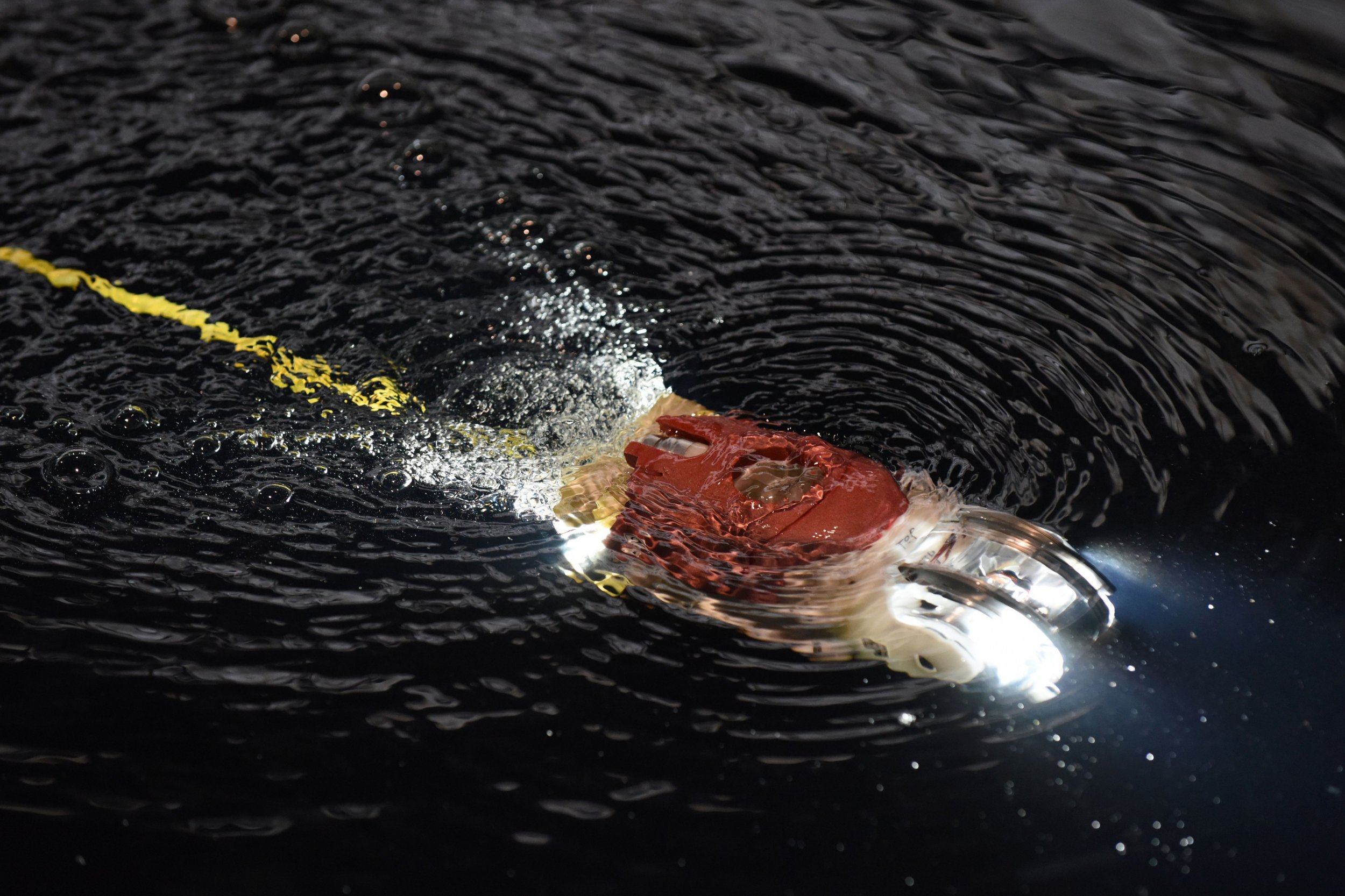
Six years after the Fukushima Nuclear incident, submersible robots have finally found the fuel that escaped the plant's reactors, The New York Times reports.
As The New York Times's Martin Fackler reported, the efforts have been taken up by the Mini-Manbo (the Japanese word for sunfish is manbou). Described as "the size of a shoe box" or the size of a bread loaf, Manbo is able to move freely through water the way a drone moves through the air.
According to Japan Times, Manbo was first unveiled in June of this year and tasked with swimming to the bottom of a pool of radioactive water, video camera attached, inside a reactor at a Fukushima power plant. The footage Manbo collects is meant to help researchers gather information from areas too dangerous for humans.
Manbo was developed with the International Research Institute for Nuclear Decommissioning. According to Japan Times, the 'little sunfish' has two cameras: a fixed one on its back end and a rotating one up front.
The Manbo model was not the first effort to send a mechanical explorer on a reconnaissance mission, though it was the first to succeed. There was the scorpion-shaped robot sent in February, which broke before reaching its goal depth. In March, a robot was sent to capture images of fuel debris in a reactor, but came up empty. An earlier probe in January, 2017 found "black lumps" in a reactor but "couldn't immediately confirm they were fuel."
Radiation at such high levels poses a clear danger to human beings. The memory of the elderly men and women known as the suicide corps who volunteered to go into the reactor site themselves highlights that fact. Manbo itself is outfitted with radiation hardened materials.
Fackler writes that Japanese officials hope Manbo's discovery marks a turning point in the "worst atomic disaster since Chernobyl."
Uncommon Knowledge
Newsweek is committed to challenging conventional wisdom and finding connections in the search for common ground.
Newsweek is committed to challenging conventional wisdom and finding connections in the search for common ground.
About the writer
Joseph Frankel is a science and health writer at Newsweek. He has previously worked for The Atlantic and WNYC.
To read how Newsweek uses AI as a newsroom tool, Click here.








